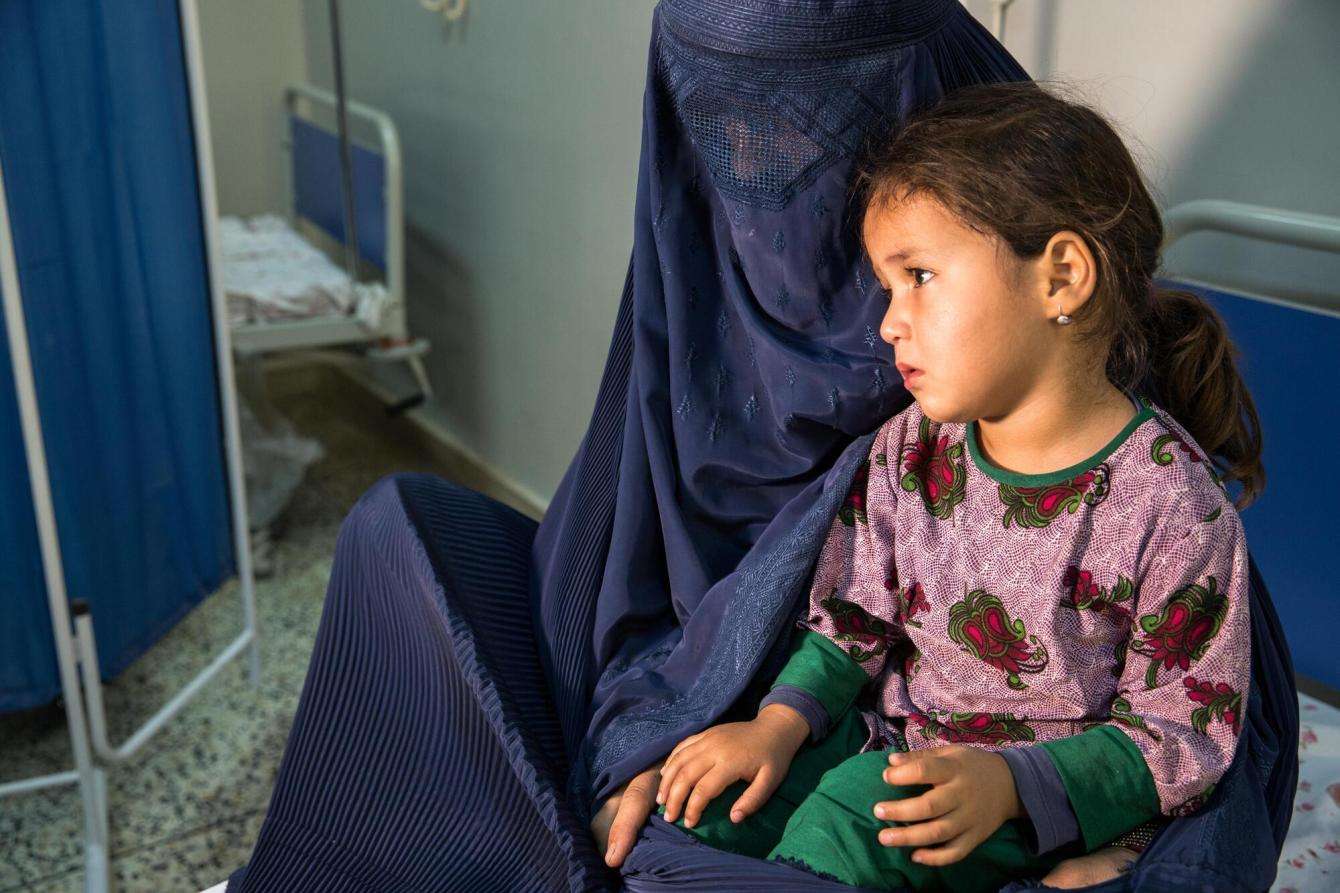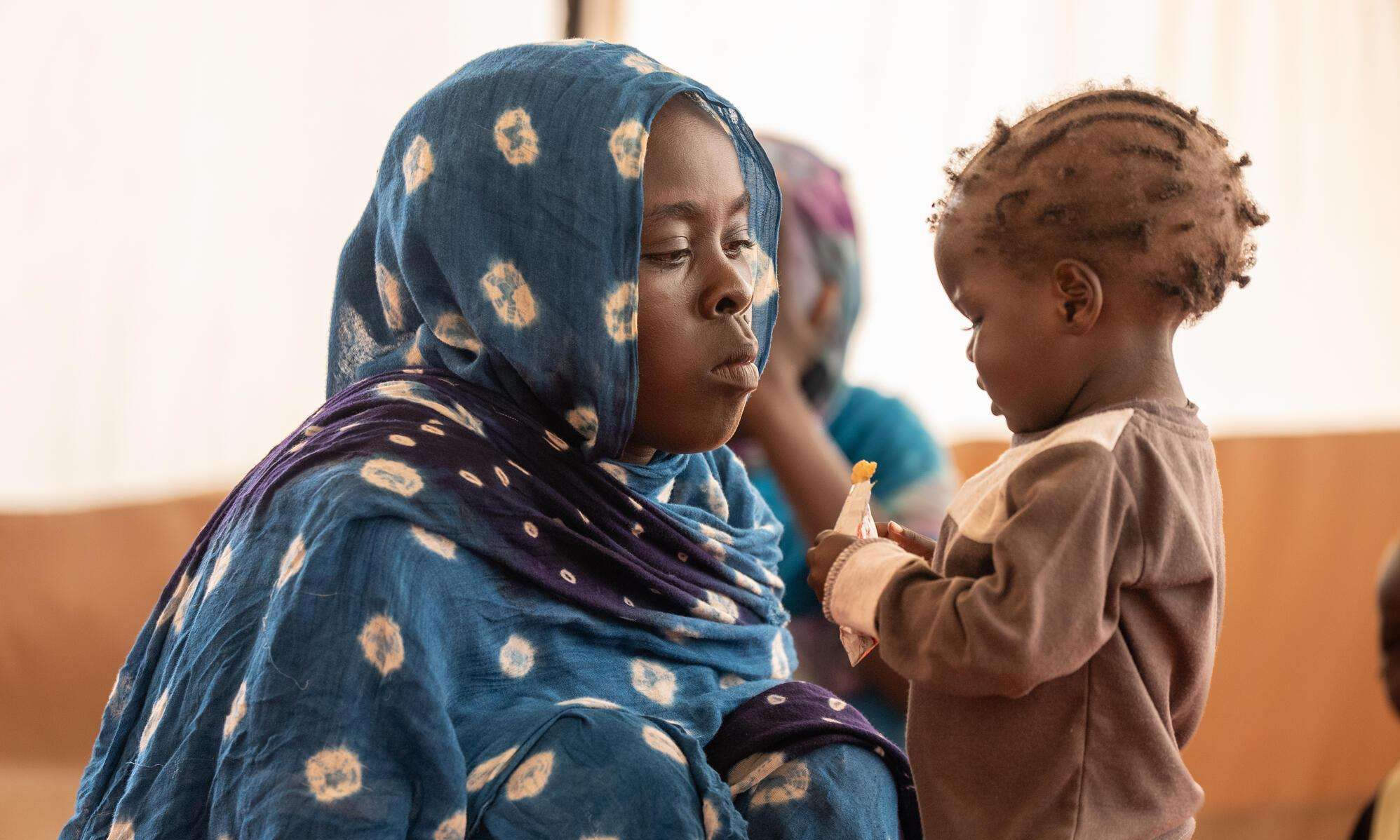From pregnancy to birth to raising children, motherhood is a journey laden with joy, uncertainty, and surprises, as well as worry.
All mothers need and deserve comprehensive care, safety, and support. But many mothers face pregnancy, nursing, and raising children without knowing if they’ll be able to access a hospital when they need it, enough food for themselves and their growing babies, or a stable home for their family after the birth. Doctors Without Borders/Médecins Sans Frontières (MSF) teams meet mothers navigating these challenges every day in our projects providing maternal health care around the world.
1. Racing to reach a hospital in time in Sierra Leone
Sierra Leone has one of the highest maternal mortality rates in the world. Many women there live in remote, rural areas that are located far from maternal health facilities, and they cannot afford the high cost of transport to reach a hospital.
“When I went into labor, I started making my way to the nearest health center, but then I felt one of my two babies coming. So I spread a cloth under a mango tree and gave birth on my own,” recounted Musa Yahya, a mother who gave birth and then went to an MSF facility for care.

MSF operates an ambulance service to transfer women and children in need of emergency care to hospitals as fast as possible. In many areas of Sierra Leone, pregnant women must also contend with poor roads, a countrywide shortage of ambulances, and a lack of proper patient referral mechanisms. If a woman experiences complications during childbirth, it may be too late by the time she reaches a hospital. MSF’s teams in Sierra Leone also carry out emergency cesarean sections and other lifesaving surgeries for pregnant women and new mothers.

2. Feeding your children—and yourself—in Yemen
Yemen is in the grips of an economic crisis caused by more than a decade of war. The cost of food has become prohibitively expensive, so many people do not get enough to eat. Malnutrition is a growing threat, especially with the suspension of the World Food Programme’s general food distributions in the north. This has had a particularly dire impact on mothers.
“Pregnant women with malnutrition are at a greater risk of complications during pregnancy and delivery, the main one being iron deficiency or anemia,” said Dr. Hilaire Pato, a pediatrician at Abs General Hospital, where by February 2024, a massive 68 percent of women admitted to the maternity department were malnourished. “A malnourished woman has a high risk of having a malnourished baby, and it will also be harder for her to breastfeed her child.”
At the same time, pregnant people’s access to medical care, including prenatal and postnatal care, is seriously limited due to the lack of functional primary health care facilities and the high cost of transportation, resulting in early signs of malnutrition going undetected for many.
“My children went to their uncle’s house for breakfast, and I left for the hospital this morning on an empty stomach,” said Mayasa, a Yemeni mother who brought her son to the MSF-supported therapeutic feeding treatment center at Abs General Hospital and is herself malnourished. “I do not have money for food. If I eat in the morning, I have nothing left for lunch and dinner.”
3. Complications and maternal mortality in Nigeria
After South Sudan and Chad, Nigeria has the third-highest maternal mortality rate in the world, with an average of more than 1,000 maternal deaths per 100,000 live births each year. The most significant factor contributing to the high maternal mortality rate is limited access to prenatal care and delivery care for complications in childbirth, which occur frequently.
At Jahun Hospital in Jigawa state, the maternity wards are often fully occupied, if not over capacity. Many of the estimated 749 primary health care centers in Jigawa do not have the drugs, personnel, and medical equipment to serve the thousands of women of reproductive age.

This dire situation leaves pregnant women with limited options. Many give birth at home with the help of more affordable traditional birth attendants, increasing the risk of complications. If complications arise, they will have to embark on a treacherous journey to try to reach a facility. Up to about 80 percent of deliveries occur at home.
To help prevent maternal deaths, MSF is collaborating with the Jigawa state Ministry of Health to provide comprehensive emergency obstetrics and newborn care, as well as fistula care at Jahun Hospital, where our teams have assisted 90,000 deliveries since commencing services in 2008. Last year, MSF teams assisted 15,754 deliveries, performed 1,911 Cesarean sections, and completed 43,785 prenatal consultations. Yet it is still a drop in the ocean when it comes to the needs of women in Jigawa state.

4. Giving birth amid bombs in Gaza
Displaced pregnant women in Gaza are living in deplorable conditions, giving birth in plastic tents and public buildings due to the lack of fuel and capacity in health facilities throughout Gaza. They also face the constant stress of bombings, displacement, lack of access to basic needs, and the uncertainty of what tomorrow holds.
More than seven months of war in Gaza have devastated its health care system, including the options for maternal care. With only 33 percent of Gaza’s hospitals functioning—and at a partial level—those still operating are forced to take only the most critical cases. Pregnant women who manage to deliver in a hospital often have to be discharged mere hours after undergoing a cesarean section. Many have not received care since the start of the war.
Since January, MSF teams admitted more than 6,000 patients to the Emirati Hospital in Rafah, where our team including gynecologists, nurses, and hygienists provide postpartum care and management of pregnancy complications, and built an extension of the maternity department to increase capacity. However, as Israeli military operations escalate in Rafah, MSF is handing over activities at the hospital to the Ministry of Health while we relocate our staff to Nasser Hospital to continue supporting maternity services in a relatively safer area.
5. Preventing mother-to-child HIV transmission in Guinea
MSF has operated free HIV testing and treatment centers in Guinea for 20 years, with a focus on preventing mother-to-child transmission of the virus.
“I had two children who were born HIV-negative thanks to the prevention of mother-to-child transmission program,” said Kadiatou Bodié Baldé, president of REGAP+, a community-based organization for people living with HIV.
“MSF’s PMTCT program in Guinea yielded exceptional results,” said Hippolyte Mboma, MSF project coordinator. “As a result of the program, less than 5 percent of children born to HIV-positive mothers have positive status, compared to 20 percent at the national level.”

MSF recruits and trains people to work as peer educators to teach people who are HIV positive how to manage their treatment, as well as deal with social stigma.
“I help people get married and gain acceptance from their families despite their illness,” said Sagno Marie, MSF peer educator. “I think it’s important to talk about HIV openly to avoid stigmatization. For me, HIV is no different from diabetes or hypertension. If you follow your treatment regimen, you’ll live a long life. It isn’t written on our foreheads that we have HIV. People can live with it.”
6. Weeks away from family for a NICU stay in Afghanistan
Prematurity is one of the main causes of infant morbidity and mortality in newborns in Afghanistan, as in other low-income countries.
Each month, MSF medical teams at Mazar-i-Sharif Regional Hospital admit an average of 3,000 critically ill children to the pediatric emergency room and an average of 546 newborns to the NICU, which has consistently had more patients than bed capacity since its doors reopened on the first day of October 2023, following extensive enhancements. For this reason, many babies have had to share beds—a situation we sometimes face in contexts where the needs are exceptionally high. MSF has had to put in place additional resources to ensure that staff can continue to provide personalized care and attention to each infant and reduce the risk of burnout due to the capacity needs and limited space.

Premature newborns must undergo long periods of hospitalization that can be extremely disruptive for their families, and many mothers stay alone with their babies in the hospital for long weeks, far from their families and homes.
“I remember the day the doctors told me that my little girl would be transferred from intensive care to the prematurity ward because she was stable. I couldn't believe it. I immediately called my husband and told him to prepare everything because the time to return home was getting closer,” said Shekiba, the mother of Atoosa, who stayed in the NICU after being born at 28 weeks.




